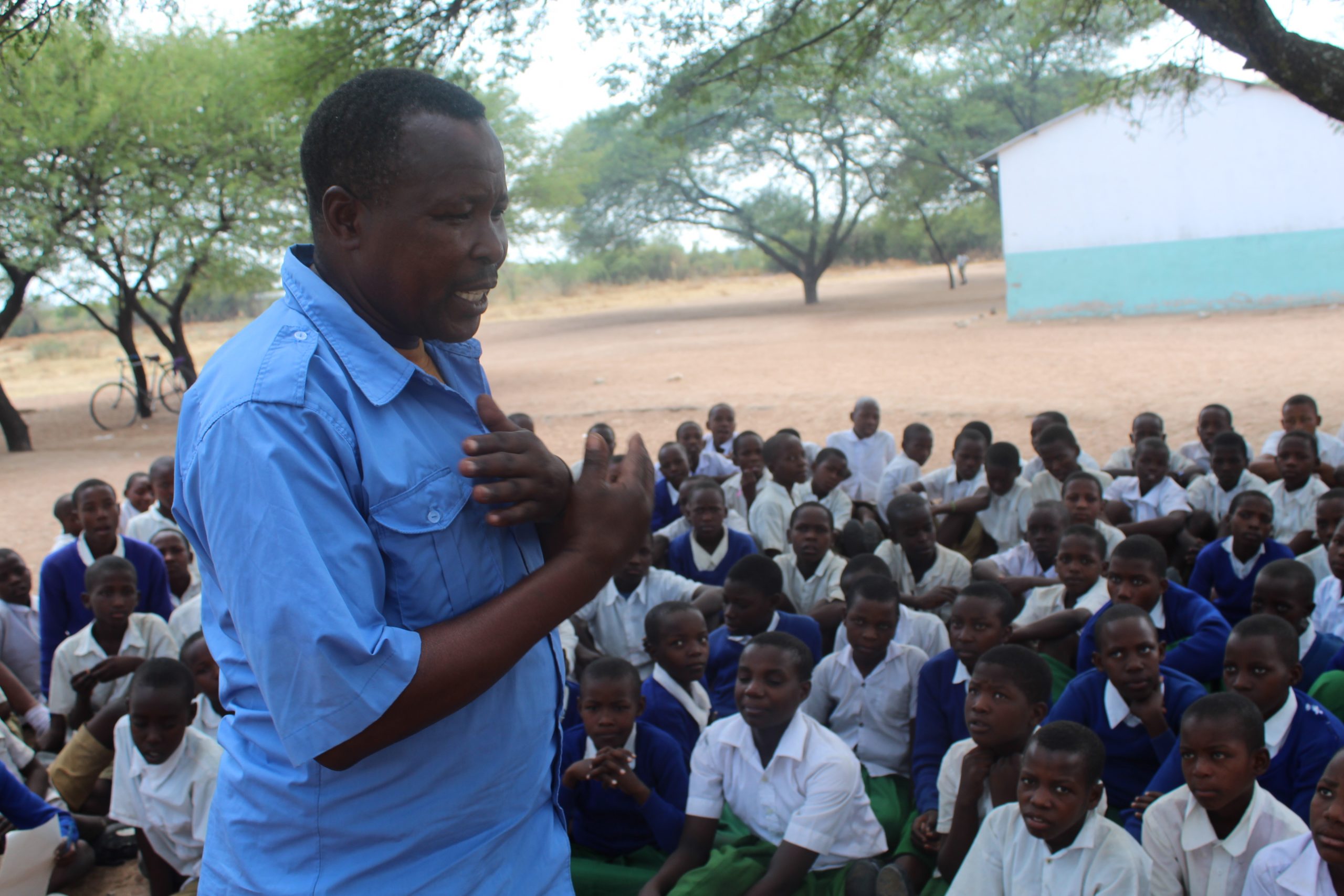
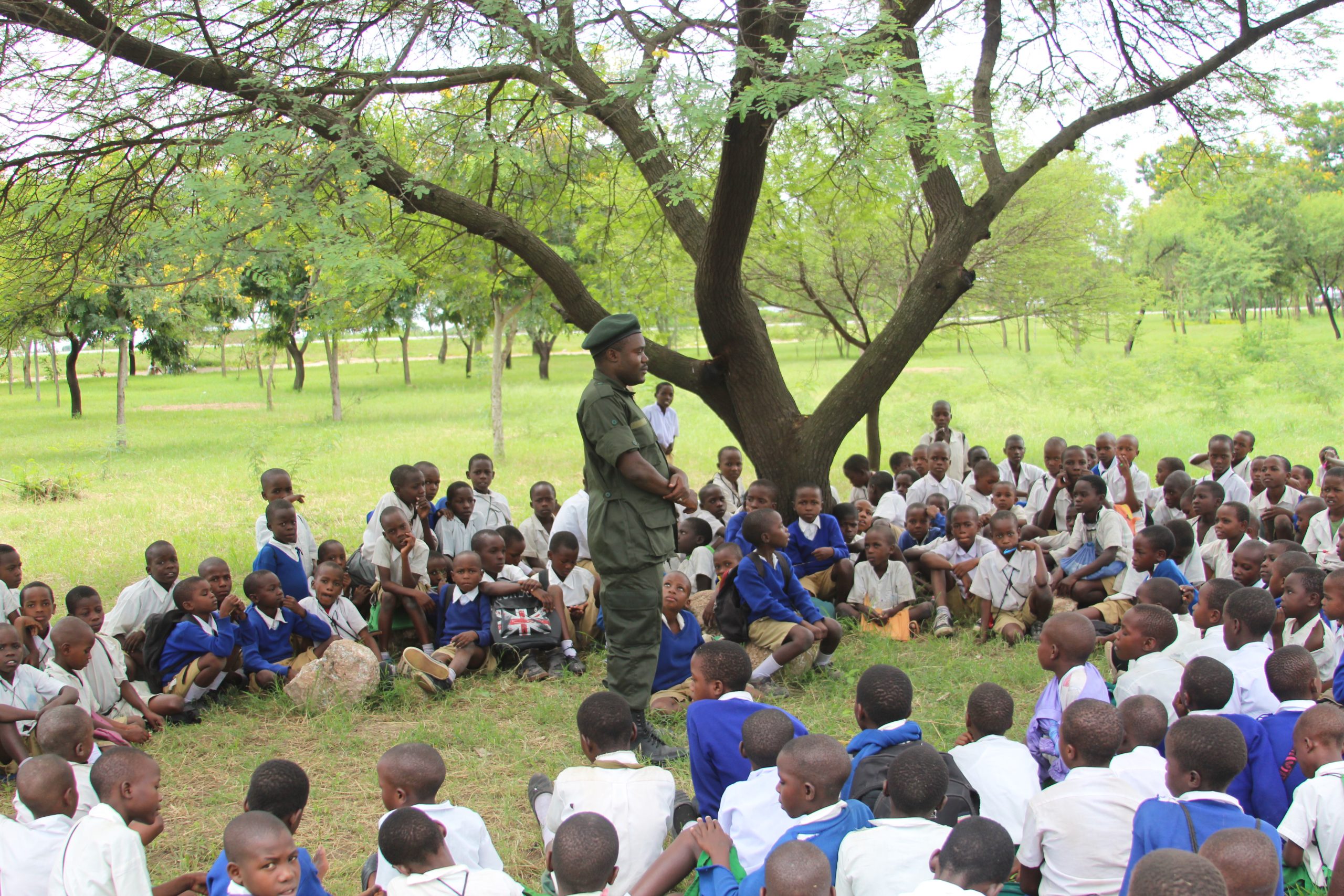
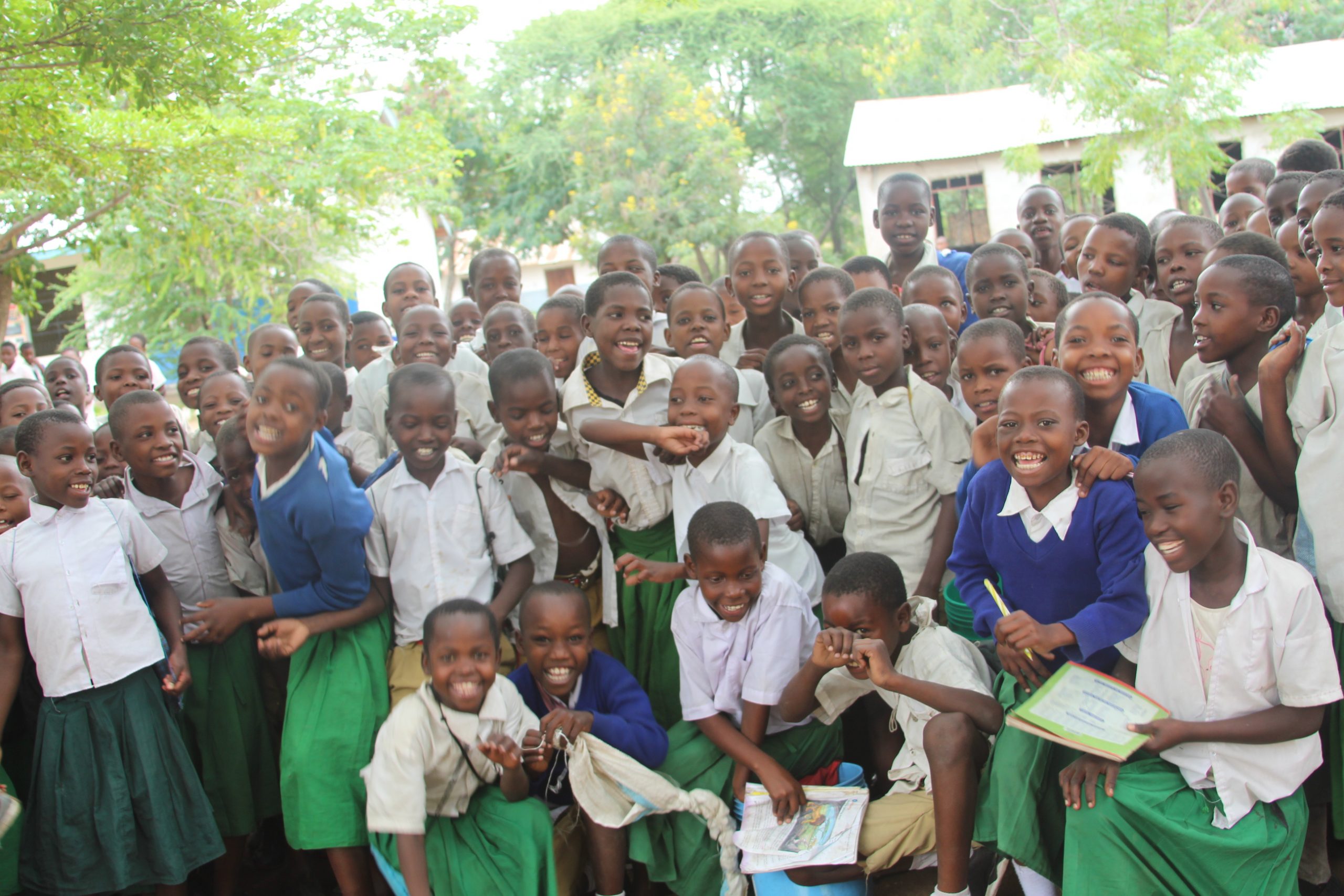
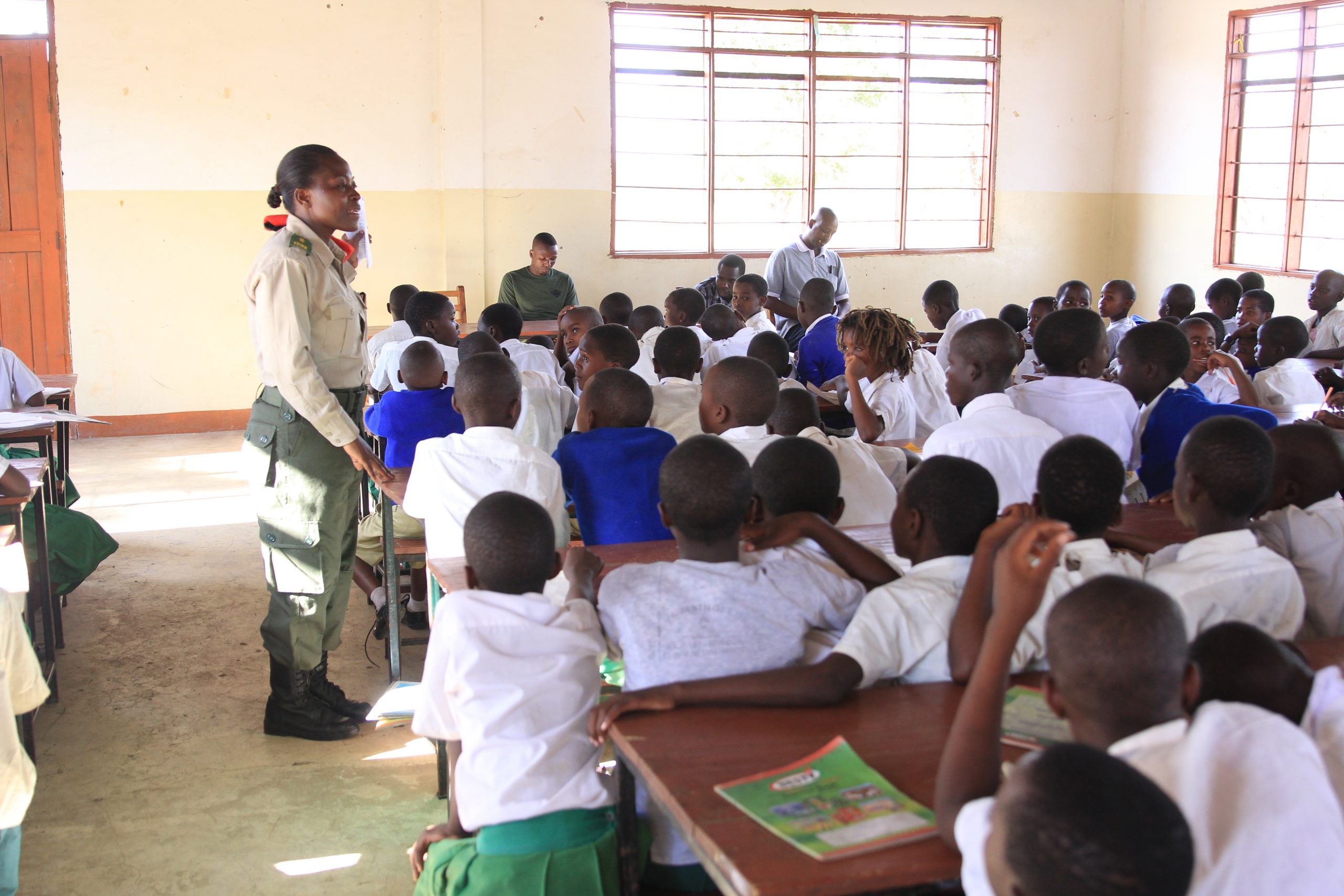
Conservation for Curriculum and Youth Mentorship
Peace for Conservation in collaboration with retired poachers, teachers, and school administrators, develop locally-relevant conservation education curricula, in order to grow conservation education capacity across schools in the Busega District. The new curriculum include information on wildlife biology and ecology, anti-poaching, environmental land use, One Health, and will engage local and international experts and volunteers in conservation education.
Further, as part of this curriculum, PFC developed an extra-curricular Eco-club program for schools, led by engaged and proactive and self-identifying teachers and school administrators. Eco-Clubs can include primary and secondary school aged-children, and would implement student-led initiatives in villages and broader community settings that center around One Health.
This may include activities such as litter clean up and educational campaigns, lakeshore improvements, planting trees for climate change mitigation and participation in soccer, dance and comedian outreach events.
Peace for Conservation also offers journalistic-style opportunities for youth, to encourage and enable them to express their views and experiences related to local environmental and social issues through different forms of media – writing, photography, social media, and video. These opportunities provide a creative space for youth to tell their story and vision for a sustainable, environmentally and socially just future.
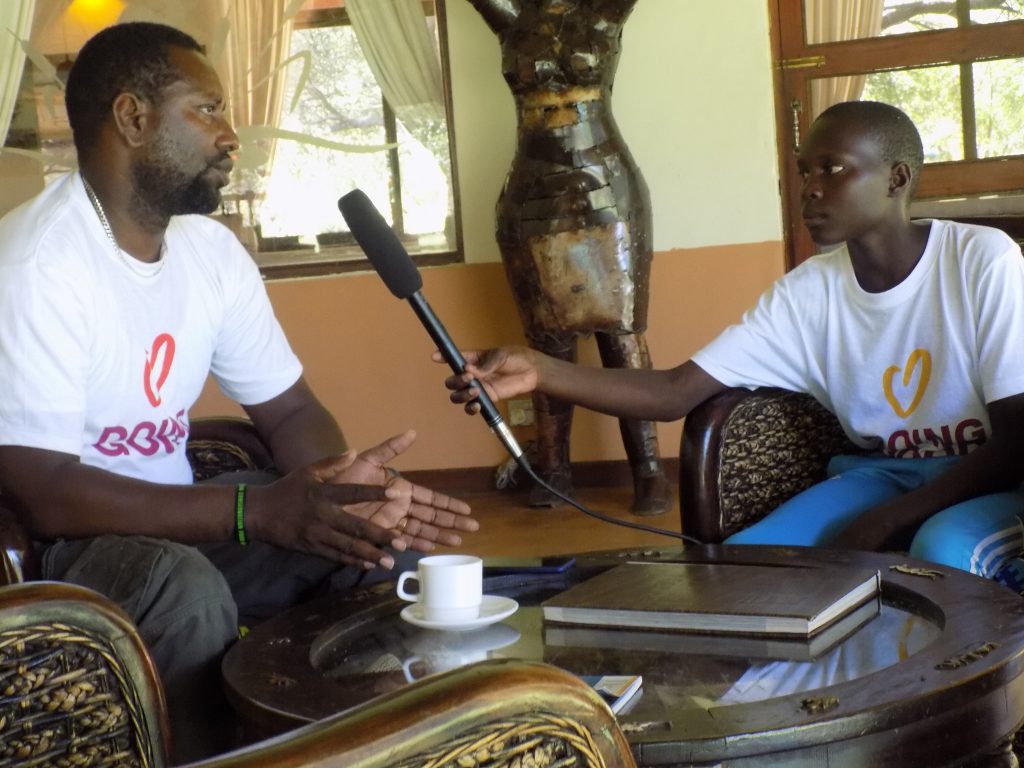
Pictured right is Janet Mkami young reporter in conservation discussiong conservation issues with the Director of Peace for Conservation.
As part of PFC’s commitment to conservation education and youth mentorship, a summer Eco-Camp program for up to 50 children and youth camping for five days in the Kijereshi Game Reserve; children learn bush life and camping skills.
Peace for Conservation provide a lead facilitation role, alongside TAWA staff rangers from the Kijereshi Game Reserve, local teachers, and farmers to talk about local wildlife conservation, land management and relationships between protected areas and community members.
PFC believes that every young person can be a conservationist. To that end, poachers are recruited and retrained by Peace for Conservation. to act as travelling village educators on wildlife conservation. One of their roles is to visit schools and local communities to advocate wildlife conservation, to teach the effects of wildlife poaching and the bush-meat trade, and to provide testimonials of the impact of wildlife conservation to Tanzania’s national income through tourism.
ECOLOGICAL RESTORATION THROUGH PLANTING TREES UNDER SLOGAN “ONE STUDENT ONE TREE”
Communities bordering Protected Areas (PA’s), especially the Western Serengeti Ecosystem of Tanzania are practicing agro-pastoralism which increases pressure to natural resources as they clear larger pieces of land to open up farms and other uses of timber for fuel wood and construction. These practices can include slash and burn, charcoal making, indiscriminate dry season fires, and encroachment of wildlife corridor for agriculture activities and settlement. We depend on trees to live, as trees produce oxygen, which is part of the air we and other animals breathe. Without oxygen, we cannot live for even a moment. Trees also help make reduce global warming both here and Africa and beyond as they reduce carbon dioxide level globally.
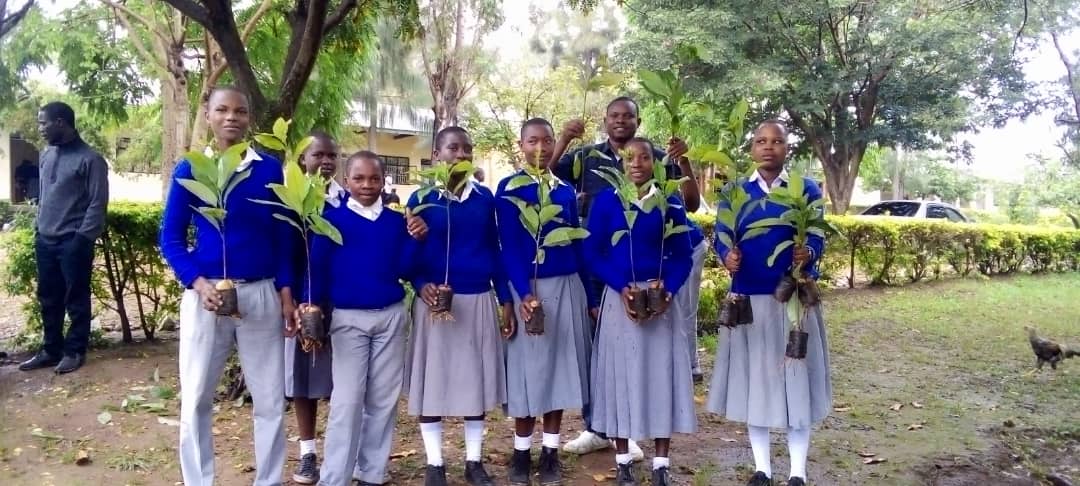
There is an urgent need to restore deforested lands to their original condition as adaptation and partly mitigating adverse effects of climate change such as drought to ensure a healthier future for both our communities and biodiversity. Pieces of land that urgently need our attention include school, village, and faith based organizations or general-purpose land, so we continue to receive environmental benefits in the future. This campaign focuses on school adjacent to Serengeti ecosystem “Western corridor” in Busega District of Tanzania. It is our hope that each student will plant at least one tree and branded his/ her name as motivation, resulting to twenty thousand trees to be planted during the campaign for the year 2021/ 2022. In a direct response to this urgent need, Peace for Conservation in partnership with Global Resources Alliance (Tanzania) have developed a campaign to distribute and plant trees in schools adjacent to the Western Serengeti Ecosystem of Tanzania, in the Busega District of Tanzania.
